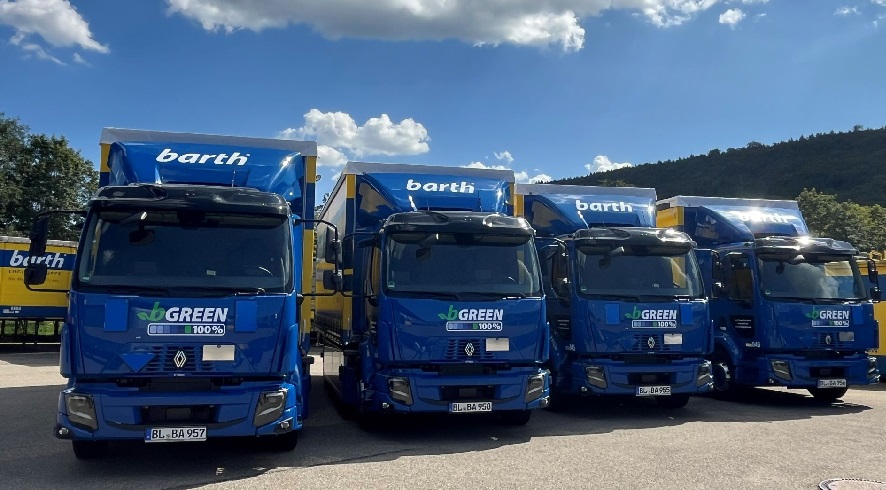Barth Logistics Group has reached a new milestone in its fleet with the introduction of electric trucks from Renault.
On 29th August, the company launched four new Renault E-Tech D14 electric trucks, marking a significant step towards greener transportation.
Uwe Schempp, Managing Director of Barth Logistics Group, expressed his enthusiasm about the new addition: “With the deployment of our four new electric trucks from Renault, we are taking a step towards a more sustainable transport solution.”
“These trucks combine our environmental responsibility with cutting-edge technology to elevate our fleet to the next level,” he adds.
The new vehicles, equipped with 375 kWh batteries, will be used for local transport at the company’s sites in Hechingen, Gundelfingen, Kandel, and Allershausen.
With a range of up to 280 kilometres, they provide an ideal solution for daily transportation needs.
The trucks also offer a cargo length of 7.20 metres, ensuring no compromise on cargo space.
Additionally, the new vehicles produce zero CO2 emissions, contributing to improved air quality and reduced noise pollution due to their low noise levels.
Frederic Ruesche, Managing Director of Renault Trucks Germany, highlighted the significance of this partnership: “Only through a collaborative approach can we successfully tackle the climate crisis.”
“The decarbonisation of the transport sector and the transition to fully electric logistics solutions are crucial. We are thrilled that Barth Logistics Group is taking this path with us,” he adds.
The investment in these four new vehicles underscores Barth Logistics Group’s ongoing commitment to implementing innovative and sustainable solutions that not only enhance operations but also benefit the environment.
By the end of this year, the company plans to install photovoltaic systems on its buildings to generate energy from its own sources.
These measures contribute to climate protection and sustainability, visually represented by the company’s new bGREEN logo, which symbolises the embrace of new technology.
Read more: Initial challenges of MCS in eTrucks: How to resolve communication issues in chargers?







